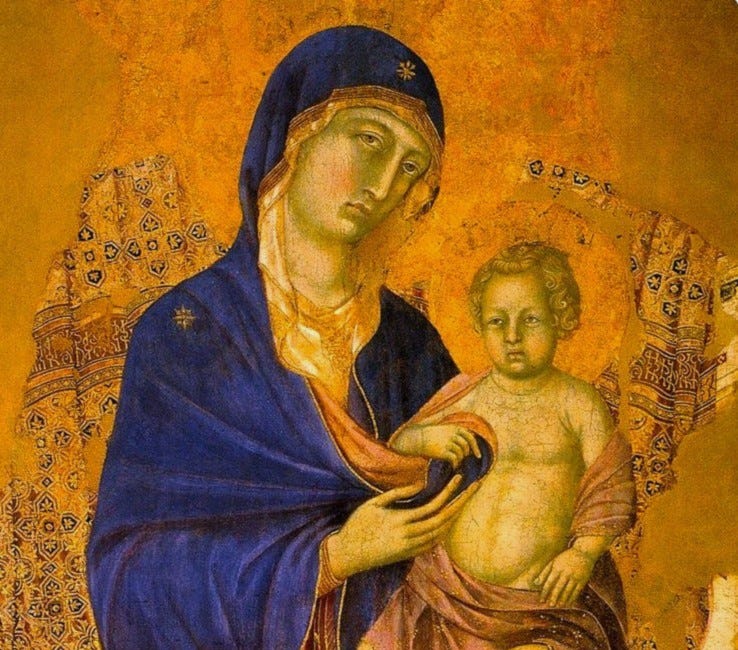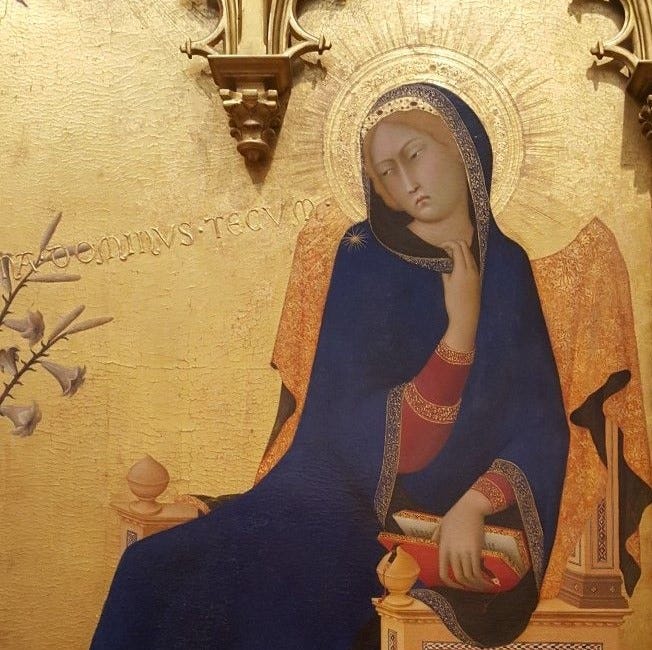Hi everyone,
I wanted to take a moment to update you on what’s happening behind the scenes and why things might be a little quiet from me this week.
I’m currently diving into some fascinating research for an upcoming piece - or possibly a series - on the Liturgical Movement and the remarkable Dom Prosper Guéranger. His work to revive Benedictine monastic life and Gregorian chant in the 19th century wasn’t just an isolated effort; it was an extraordinary and heroic response to a multi-century cascade of historic catastrophes that had all but erased a crucial part of Western Christianity. The story of St. Peter’s Abbey of Solesmes is as much an adventure as it is a spiritual revival movement, and it’s shaping up to be one of the most complex research projects I’ve tackled.
At the same time, I’m also chipping away at my ongoing “What Happened to All the Monasteries” e-book, which ties into this project. These are complex and ambitious topics, requiring a lot of careful reading, cross-referencing, and synthesis.
However, on top of being snowed under with projects, I’m also battling a fairly severe bout of depression. The truth is, the internet isn’t just a distraction, it’s become an almost constant stream of horrors and terrors lately, and it is all feeling lately like I’m being paralysed by it. I’ve realized I need to switch off to be able to keep working or work productively. So, for the next week or so, I’ll be stepping away from posting and social media, drinking a lot of sage tea and going for a lot of walks. I’ll be turning to books - mad, I know! - for this research, which will allow me to slow down and focus and maybe obtain a calmer rhythm of thought, and stop this feeling like I’m slogging through molasses.
I’m deeply grateful for your support and patience, and especially to the paid subscribers for taking this project as seriously as I do. This community means the world to me, honestly, and I’m looking forward to returning with a renewed sense of clarity to share.
Meanwhile, here’s an interesting source on our current topic:
Hot art exhibition tip
If you’re in New York or can get there, I’d also really strongly suggest going to see this exhibition at the Met; all our favourite Sienese Trecento painters in one place, a very rare opportunity.
If you’d like a little background reading to see why I’m so excited about this:
Artist focus: Duccio di Buoninsegna master of the Italian Gothic
Duccio di Buoninsegna (c. 1255–1319), a Sienese painter of the late 13th and early 14th centuries, is considered one of the greatest ar…
"Ave, gratia plena": The greatest masterwork of the Sienese Trecento?
I think it’s time to revisit 14th century Siena.
Duccio's Maestà: you open a door and walk into the golden court of heaven
Exemplar of the Sienese Gothic, the Trecento
Setting the scene
Here’s some of the draft text of the (possibly first) article so far. There’s a whole section of European history that is just not widely known. To understand why Gueranger’s work was so radical, we have to look behind him…
~ * ~
Everything was falling apart, though this was something the wealthy industrialist elites of 19th century Europe were probably incapable of seeing. To them, the their time seemed an age of dazzling progress. Machines roared, factories churned out unprecedented wealth, and cities grew into sprawling monuments to human ingenuity. Yet beneath the surface, the spiritual and moral fabric of European civilisation was unravelling and, as we know now, the whole ship was headed full speed directly at an iceberg.
By 1850, for over two hundred years the social, religious and moral foundations of Europe that had sustained human dignity, community, and sacred purpose for centuries were being stripped away in the name of modernity and “progress”. An that process never stopped. As I write this, we are hearing that the war in Ukraine is being escalated - knowingly and deliberately - by the inheritors of the same “progressive” section of ultra-wealthy elites; we are now, as a species, under an imminent threat of near extinction from nuclear war.
The long unravelling began with the catastrophe of the Protestant rebellion that grew out of fashionable naturalistic and secular philosophies promulgated across Europe at the time of the Renaissance. That rebellion - that led to one of the bloodiest wars in Europe’s history - shattered the spiritual unity and political foundations of western Christendom and set the stage for the Enlightenment’s secular ideologies.
These forces and the upheavals they caused ground down religious practice, assaulting the monastic foundations especially, and finally marginalised religious belief itself. By the opening of the 18th century the old religion held at best a nominal position in public life, and - after the French Revolution - was finally entirely dismissed by the elites at the close of the century; an outdated superstition unfit for the new rational and scientific age.
Back next week…
HJMW






Saying a little prayer for you, Hilary, that you may soon find calm and strength. Through the mercy of God.
Depression is serious. Take the time to care for yourself and to do what you need to do. I have recommended you to Saint Alphonsus Liguori who suffered episodes of depression. God bless you.